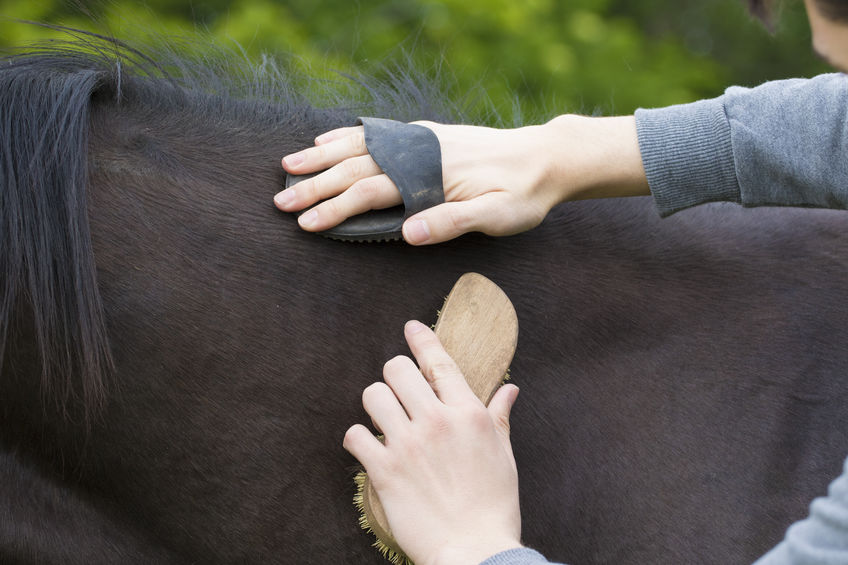 Taking your horse out for walks and rides and allowing them time to roam around your pasture is an essential aspect of horse care. Unfortunately, this time spent exploring outdoors leaves your horse vulnerable to a few additional health risks—and ticks are one of the worst!
Taking your horse out for walks and rides and allowing them time to roam around your pasture is an essential aspect of horse care. Unfortunately, this time spent exploring outdoors leaves your horse vulnerable to a few additional health risks—and ticks are one of the worst!
Educating yourself on the best tick prevention methods and care is important to ensure your horse lives a long and happy life. Use the information below to equip yourself with the necessary tools and knowledge to protect your horse from these nasty pests.
How Does a Horse Get Ticks?
Ticks are found all over the United States. They live in areas with heavy woodlands, long grasses and bushes, and warm and humid temperatures. A tick will attach to a horse as it walks by, attracted by their sweat, movement, and the ammonia in their breath. They’re most often found on a horse’s chest, ear canal, nasal passages, underbelly, mane, tail, and anal area.
How Can I Tell if My Horse Has a Tick?
You should be checking your horse for ticks regularly, so if one has attached itself, there’s a good chance you’ll feel or see it. It’s also important to be on the lookout for symptoms of a reaction or tick-borne illness, including:
- Unwell appearance
- Falling or wobbly legs
- Labored breathing
- Weakness/fatigue
- Irritation
- Poor appetite
How Do I Remove a Tick From My Horse?
As soon as you find a tick on your horse, you should remove it right away. Use tweezers or a “tick key” to gently grasp the tick by its head (where it has attached to the skin). Pull firmly in a straight, swift motion until the tick detaches. Drop it in rubbing alcohol to kill it, and then disinfect the area on your horse.
How Do I Prevent My Horse From Getting Ticks?
As previously mentioned, you should perform daily inspections on your horse to catch ticks early—either before they go in for the night or as you groom them. Make an effort to keep them out of known tick habitats and start a preventative medication regimen. You should discuss with your vet the best sprays, topical treatments, or medications for tick control in your horse.
Your horse requires a dependable shelter to retreat to every night for comprehensive protection against the various pests and hazards in their environment. This shelter is a secure haven, shielding your horse from the elements and potential threats and ensuring their well-being.
A run-in shed or prefabricated barn from Deer Creek Structures will ensure that your horse is safe and comfortable for years to come. Our buildings are constructed using high-quality materials and have a high standard of design.
Contact our team at (254)546-2276 to find the right structure to protect your horse today!
